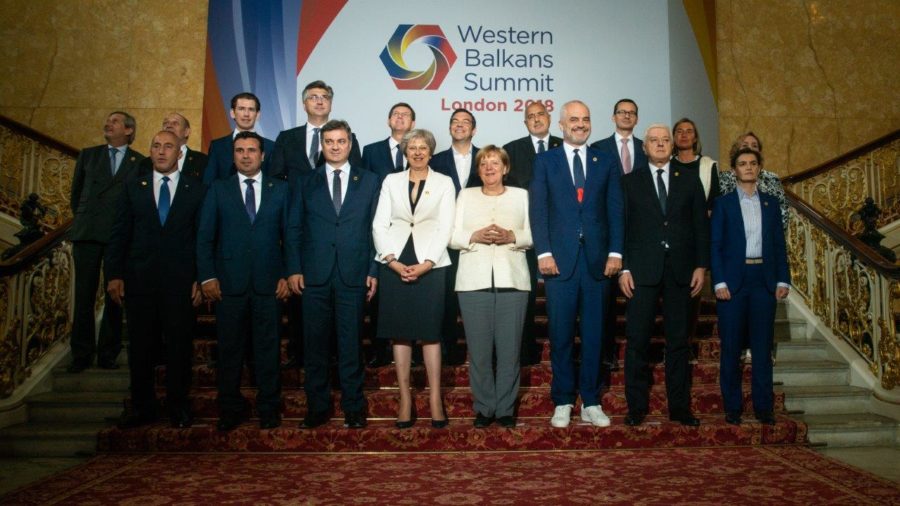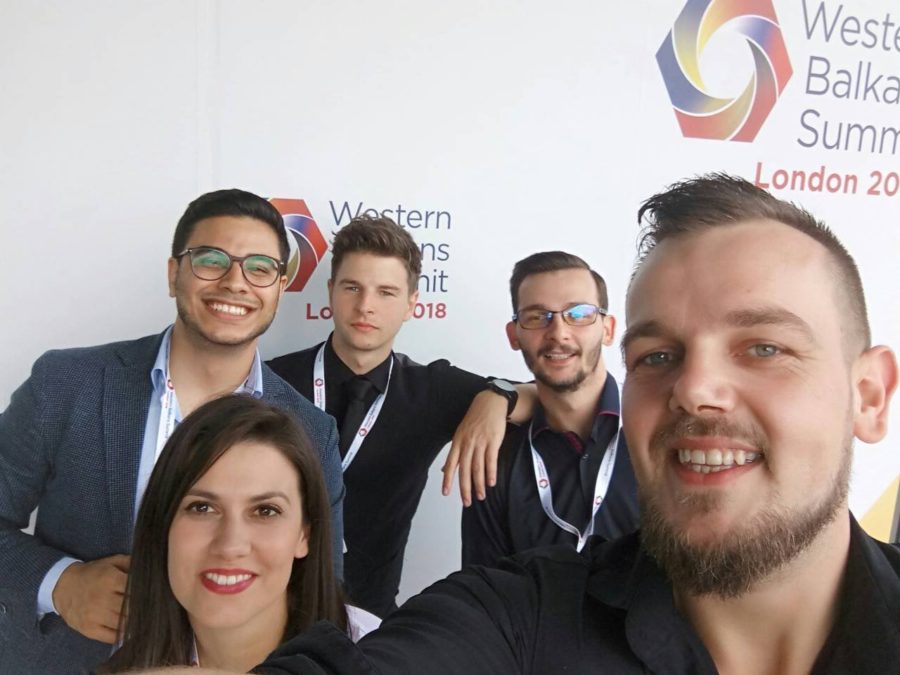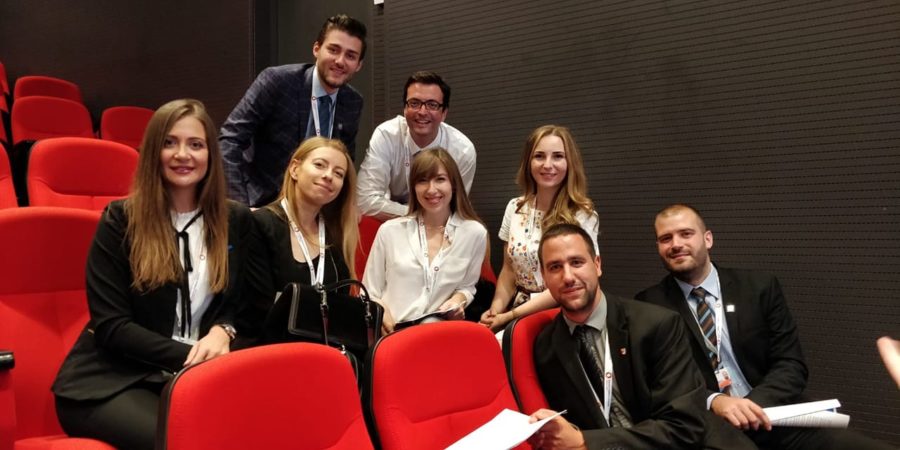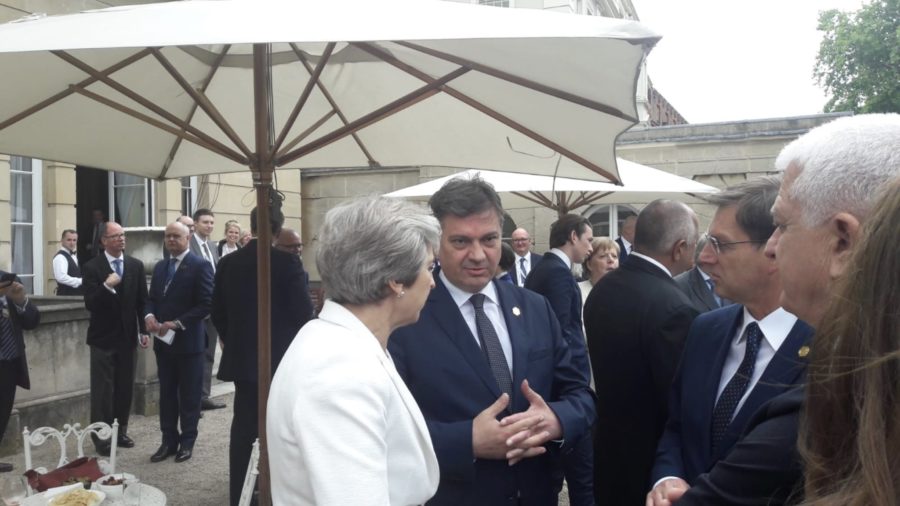12th July 2018
When the Western Balkans came to London

This week, the leaders of 16 countries came to London for the fifth Western Balkans Summit within the Berlin Process created by Chancellor Merkel. It was an important moment – a chance to take stock of the progress that has been made in the region, and a chance to plan for the future.
The agreement between Greece and Macedonia over the long-running Name Issue provided a positive backdrop for the Summit. There was also progress to report on economic development, although other countries are moving faster than BiH. But everyone there knew that there are some big issues where much more needs to be done: to strengthen the rule of law, tackle corruption and to embed human rights for all.
The London Summit was the most ambitious yet. When it started, the Berlin Process was mainly about improving trade and economic links within the region, and building better infrastructure. This remains at its heart. But, in London, there was a new focus on security cooperation. Security Ministers met for the first time, alongside Foreign and Economy Ministers. And we also tried to make progress on some of the long-running political disputes and legacy issues that can hamper bilateral relations within the region.
So what happened? The resignation of our Foreign Minister, Boris Johnson, may have caught some of the headlines, but we wouldn’t allow a little thing like that to knock us off course! Instead, it was a great introduction to the Western Balkans for our new Foreign Secretary, Jeremy Hunt, on his first day in the job. We’re really pleased that the Summit delivered at the outer edge of our expectations. Some important commitments were made, many of which will directly benefit BiH. Here are some of the most significant.
Economic Development
- BiH secured support from the European Commission for three highway projects worth €275 million, which also donated grants worth €43 million towards the projects.
- The digital sector is the second-fastest growing in BiH, and has huge potential. We launched a Global Entrepreneurship Programme for the Western Balkans, and five digital start-ups from BiH took part in a regional competition – more than from any other country. The UK also announced a new project worth £10M to donate BBC Micro:bits to every primary school in BiH and the wider region – 4,500 schools in all – to help teach digital programming and problem-solving skills.

- One of the biggest problems facing entrepreneurs in the Western Balkans is the difficulty of accessing affordable finance. The European Commission launched a new guaranteed loan facility worth 150 million euros to support small and medium-sized companies.
Security Cooperation
- BiH, together with its neighbours, signed a commitment to strengthen its efforts to tackle corruption, and to properly resource the institutions responsible for this critical work. Foreign Minister Crnadak openly acknowledged that there hadn’t been a single high-level conviction for corruption in recent years. This must change.
- All Western Balkans countries agreed to improve the sharing of criminal information in order to build a better, shared understanding of threats from terrorism, organised crime and illegal migration. The UK will chair a new Security Commitments Steering Group, which will monitor and report on progress. And the UK will also be deploying more people to the region, including experts in the investigation of financial crime, to work closely with our partners on the ground, share information and build capacity.
- Governments made concrete commitments to work together to tackle the illegal trafficking of weapons and human beings. The UK will also invest £1 million in helping Western Balkans countries to tackle cyber threats.
Political and legacy issues
- There was unprecedented involvement in the Summit from civil society groups and youth representatives. They were able to meet and put their questions and challenges directly to Ministers, rather than in side events. These groups discussed important issues like educational reform, human rights and freedom of expression. The UK also announced a £4 million programme to expand the work of the Westminster Foundation for Democracy across the region.

- Prime Ministers made a clear commitment to work harder together to find the bodies of 12,000 people still missing from the conflicts of the 1990s. The International Commission on Missing Persons is leading work with the region’s Missing Persons Institutes on a Framework Plan to guide these efforts over the next five years, and the UK has committed £1 million in support. HRH The Prince of Wales gave his personal backing to this work at a reception which he hosted in St James’s Palace, which was also attended by some of the families of the missing.
- Prime Ministers signed a joint declaration underlining the importance of finishing the process of dealing with war crimes, respecting the judgements of domestic and international courts, promoting respect for victims and rejecting hate speech and the glorification of war criminals.
- Prime Ministers also agreed to work harder on resolving bilateral disputes with their neighbours. In BiH, for example, this might include agreements with Serbia and Croatia on open issues relating to the borders, or working towards visa-free travel arrangements across the region. They will report annually on progress made.

So a lot of ground was covered in just two days. Important agreements were reached. But, as ever, the real test will come in the implementation. Poland will host next year’s Summit and, by then, we want to see concrete results. That’s why the British Embassy will be getting more money, and more people, to support the realisation of these ambitious plans. Well, I wouldn’t want the next British Ambassador to get bored!
Well done, it sounds like some real progress and commitments have been made.
Thank you for your diligent work!